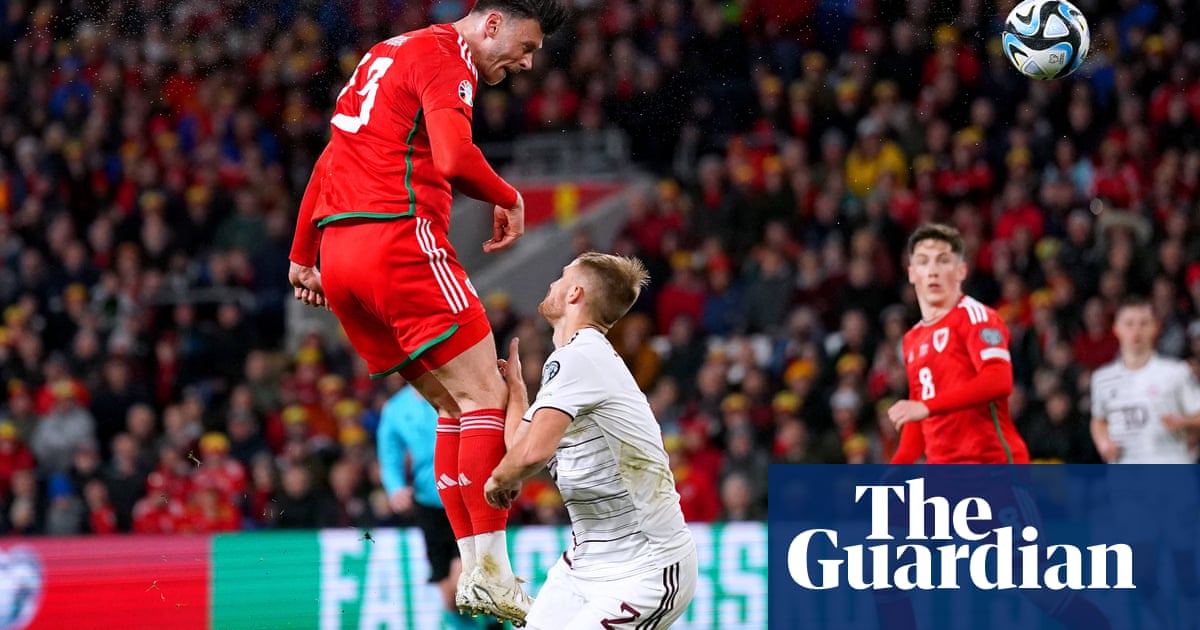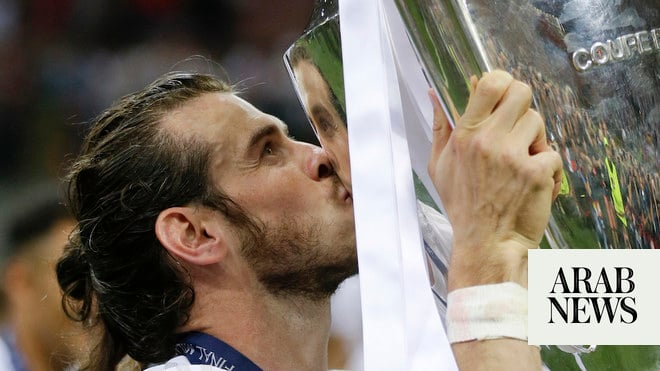
The Wales men’s football team have sidled into their transitional phase with a disarming, suspicious ease over the past five days, causing supporters to look over their shoulders uneasily, trying to find the catch. The performances won’t set pulses racing but an unexpected four points from the opening two games have left Wales joint top of Group D having played their most difficult fixture. Gareth Bale is irreplaceable. But there may be life after him.
The qualification campaign for Euro 2024 began in Split last Saturday night, as a new-look Wales squad travelled to a country who have never lost a European Championship qualifier at home, in a record that stretches back to 1994, and the 29-year-old goalkeeper Danny Ward’s earliest dalliances with solid food. Bale had retired in January, to be followed by more cult heroes from the class of 2016. Joe Allen, a player’s player; the shrewd, perceptive, metronomic presence in our midfield who allowed a succession of Wales managers to get the best out of Bale and Aaron Ramsey decided in February that his time at the highest level was over, followed shortly after by Jonny Williams and Chris Gunter.
Williams, so often the player to draw the foul that resulted in a Bale free-kick in a dangerous area, will be missed. Gunter, with his 109 appearances over a 15-year career making him the second-most capped men’s international after Bale, epitomised more than anyone the profound connection between the fanbase and the team. His faultless commitment to playing for his country gave him a popularity rating among supporters that would make the leader of a totalitarian regime blush. He immediately joined Rob Page’s coaching staff, like a cigarette smoker moving to a vape. The Wales national team might be Gunter’s addiction, but alongside Eric Ramsay, the Manchester United first-team coach who has joined as assistant manager, he plays a role in Page’s reinvigorated management team. After the disappointment of Qatar, something had to change.
Wales have never had a deep squad, and so in this brave new world the absence of Ben Davies and Brennan Johnson in Croatia was felt even more keenly. Step forward substitute Nathan Broadhead, the 24-year-old Ipswich striker who bundled home a 93rd-minute equaliser on his debut with Wales’s first shot on target. Our talisman has retired, and with Johnson, the youngster charged with replacing Bale’s moments of sorcery, unavailable through injury, a goal from a player who’s had loans at Burton, Sunderland and Wigan caused the explosion of delight in the Wales technical area you would expect.
Broadhead instantly went to kiss the badge on his shirt, before celebrating in front of the delirious Wales end, appearing close to tears as he was embraced by teammates. He seemed to float through his post-match interviews, the Bangor-born lad who started his career at Everton asserting that he’d been waiting for this moment his entire life. If only there was a Narrative World Cup. We’d be through to the knockout stages of that.
And so on to Latvia at home, the fixture that had been targeted as a must-win in this international break. Latvia, 105 places below Wales in the rankings, put men behind the ball in a gameplan designed to frustrate. Bale, the person we’ve relied on to break down this kind of opposition for so long, was in attendance, speaking before kick-off to thank the fans for their support during his career. At least Ian Rush, watching as part of his role as an Football Association of Wales adviser and ambassador, has the good grace to have grey hair, assuaging the nagging feeling that we have the personnel to break down unambitious opponents, but they are sitting in the stands instead of playing on the pitch.
As Bale addressed the 32,000 crowd, visibly emotional and able to command the attention of strangers in a way to make doleful airline staff jealous the world over as they thanklessly run through safety announcements, it was poignant how young he still looks. Only 33 years old, to the naked eye the same as the player who scored all three goals in the World Cup playoffs against Austria and Ukraine less than a year ago. But time marches on.
Wales dominated possession, but lapses in concentration gave Latvia opportunities that would be taken by better teams. The Canton Stand was restless, either still hungover from Split or regretful that they hadn’t been there. It became apparent after 10 minutes that our songbook needs a refresh, as we sang about players who are no longer part of the squad. Every time Wales gave away a corner Joe Rodon screwed up his face in disappointment like a four-year-old asked to put his hood up because of rain, proving that some things never change. Daniel James, who appeared so short of confidence in Split, looked alert, frightening a lumbering back four with his pace and providing the cross for Kieffer Moore’s towering header on 41 minutes. Everyone breathed a sigh of relief.
Neco Williams had a shot tipped on to the crossbar four minutes into the second half, but a swashbuckling performance never came. The more circumspect members of our support remembered that qualification for our previous three tournaments involved one-goal wins over Cyprus, Andorra and Azerbaijan among others, and looked to the future.
David Brooks, having recovered from cancer, could feature again in June, adding much-needed enterprise to our forward line, and the procession of recent retirements means Wales are understandably a work in progress. The senior team’s win capped a brilliant day for Welsh football however, as the men’s under-17s qualified for the Euros, the first time a Wales team have reached a youth finals since the 1981 European Under-18 Championship. Players such as Bale come along once in a lifetime. But the slow build to accommodate life without him has begun.












